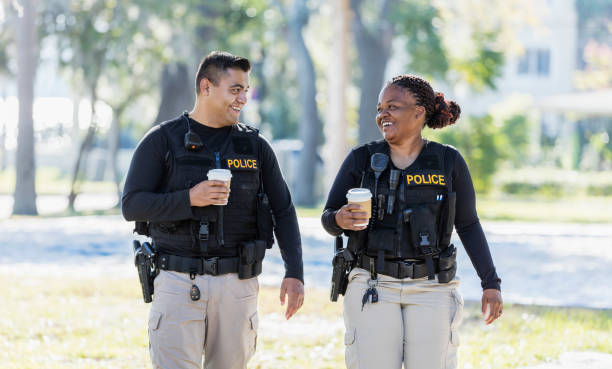Introduction
Community policing strategies are designed to build strong relationships between law enforcement agencies and the communities they serve. Online surveys can play a crucial role in strengthening these strategies by providing valuable insights and fostering open communication. This article explores how online surveys can be used to enhance community policing efforts and improve overall effectiveness.
The Role of Online Surveys in Community Policing
- Gathering Community Feedback
Online surveys offer a straightforward way to collect feedback from community members. By asking targeted questions about their experiences and perceptions of police services, agencies can gain a deeper understanding of community needs and concerns. - Identifying Key Issues
Surveys can help identify specific issues or areas where community policing strategies may need adjustment. For example, if survey results reveal concerns about the responsiveness of officers or the effectiveness of community outreach programs, agencies can take targeted actions to address these issues. - Enhancing Communication
Online surveys facilitate ongoing communication between law enforcement agencies and the community. Regularly soliciting feedback and sharing survey results helps build trust and demonstrates a commitment to addressing public concerns.
Effective Strategies for Using Online Surveys
- Design Targeted Surveys
Develop surveys that address specific aspects of community policing, such as satisfaction with neighborhood patrols, perceptions of officer behavior, or effectiveness of crime prevention programs. Tailoring surveys to these areas ensures that the feedback gathered is relevant and actionable. - Promote Participation
To maximize the impact of surveys, promote them through various channels, such as social media, community newsletters, and local events. Encouraging widespread participation helps ensure that the feedback received is representative of the broader community. - Analyze and Act on Feedback
Use the data collected from surveys to identify trends and areas for improvement. Implement changes based on this feedback and communicate these actions to the community to demonstrate that their input is valued and leads to tangible results.
Using Officer Survey to Support Community Policing
Officer Survey is an effective platform for leveraging online surveys to strengthen community policing strategies. Here’s how it supports these efforts:
- Customizable Survey Features
Officer Survey allows for the creation of customized surveys that align with specific community policing goals and objectives, ensuring that the feedback gathered is relevant and useful. - Real-Time Data Insights
The platform’s real-time data insights help law enforcement agencies quickly identify trends and issues, enabling timely responses and adjustments to community policing strategies. - Enhanced Engagement
Officer Survey facilitates easy distribution and promotion of surveys, helping to engage a broader audience and gather diverse feedback from the community.
Conclusion
Online surveys are a valuable tool for enhancing community policing strategies by providing insights into community needs, identifying key issues, and fostering communication. By leveraging platforms like Officer Survey, law enforcement agencies can strengthen their community policing efforts, build trust, and improve overall effectiveness.






